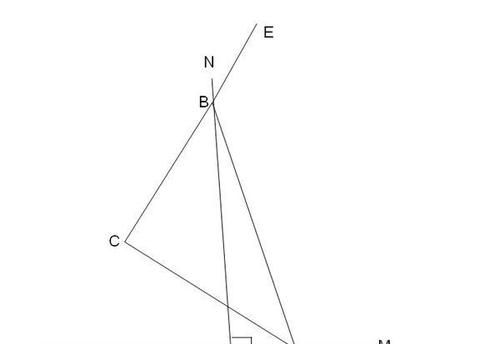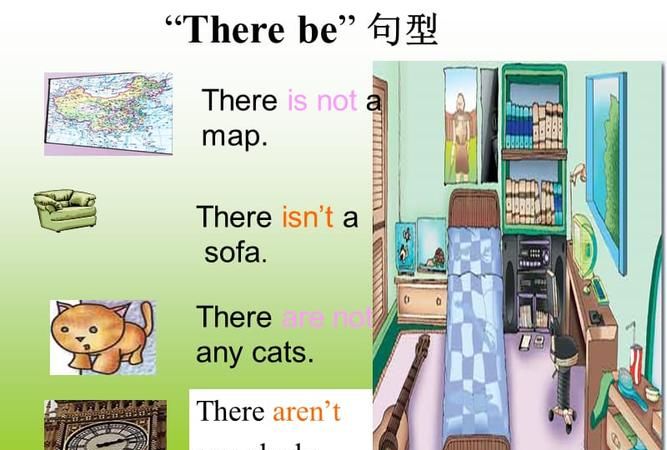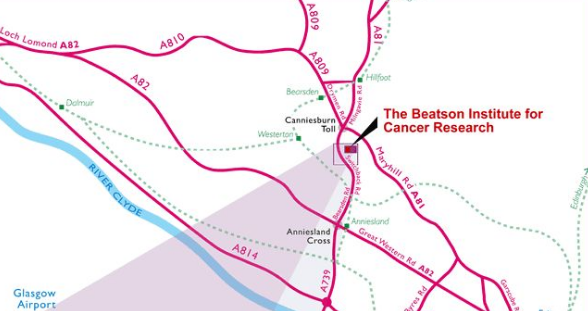本文目录
be的用法口诀的总结
be是用来表示某人或某物即主语本身,用来表示某人或某物属于某一群体或有某种性质;be的用法有哪些呢?本文是我整理be的用法的资料,仅供参考。
be的用法
Ⅰ.“be+状语(表示地点,用副词或介词短语表示之)”:
1.Their machine is here.他们的机器在这里.
2.The sample is on the working table.样品在工作台上.
Ⅱ.“be+名词、形容词或介词短语等(作表语)”:
1.Iron is useful.铁是有用的.
2.Our victory is a great victory.我们的胜利是伟大的胜利.
Ⅲ.“be+过去分词”一般系被动语态:
1.The plant was built in 1958.该厂建于1958年.
2.This book will be translated by the old workers.这本书将由那些老工人来翻译.
Ⅳ.“be+-ing”一般表示正在进行时态:
1.They are designing a new-type machine.他们正在设计一台新型机器.
2.This kind of machine was being designed by the enginers.当时这种机器正由工程师设计.
注:注意用逻辑判别方法把-ing(动名词)作表语的情况和本句型分开.例如:
Our task is building socialism.我们的任务是建设社会主义.
由于主语task产生不了“正在建设”这个行为,故从逻辑上就可判定谓语不能构成进行时态.
Ⅴ.“be+动词不定式”一般用来表示计划、安排或约定将要实行的行为:
1.The method is to be described in detail.这种方法将予以详细说明.
2.He is to leave at night o'clock this evening.他要在今晚八点钟离开.
注1:有时“is(或are)to be +过去分词”这种结构含有can be,must be的意思.例如:
1.This compound is rarely to be found in nature.(=This compound can rarely be found in nature.)这种化合物在自然界很少发现.
2.These rules of the road are to be strictly observed.(=These rules of the road must be strictly observed.)这些交通规则必须严格遵守.
注2:“is (或are) not to be+过去分词”含有禁止、不许可之意.例如:
1.The magazines are not to be taken out of the reading-room.杂志不准携带出阅览室.
2.This chemical is not to be exposed to air.这种化学制品不可暴露于空气之中.
注3:注意用逻辑判别方法把上述用法和be后的不定式作表语区分开.例如:
1.To live is to struggle.生活就是斗争.
2.The main aim is to get good results.主要目的在于取得良好的结果.
由于上述两句中的主语都不能产生be后面的不定式所表示的动作,故后面的不定式只能作表语.
Ⅵ.“be+ going+动词不定式”:
A.表示在最近期内“打算、准备作……”之意:
1.We are going to repair the machine this afternoon.我们打算今天下午修理那台机器.
2.There is going to be a meeting tomorrow.明天准备召开一次会.
B.表示“即将或马上就要进行某种动作”之意:
1.The train is going to stop now.火车马上就要停下来.
2.It is going to rain.天就要下雨.
注:如果表示即将进行某个动作,还可用“is about to +原形动词”(就要、即将)或“is on the point of”(马上就).例如:
1.They are about to repair that machine.他们马上就修理那台机器.
2.They are on the point of repairing the machine.他们马上就修理那台机器.
Ⅶ.“be+certain (或likely,unlike等)+不定式”:
1.In the end he is certain to succeed.最后他必定成功.
2.She is likely to start for Shanghai.她似乎要去上海.
Ⅷ.be作“exist”(存在)
Such things are.这些情况是存在的.
Ⅸ.be(动词原形)用于让步状语从句:
1.Be it late,I must finish this work.尽管晚了,但我仍须结束这项工作.
2.All magnets behave the same,be they large or small.所有磁体,不论大小,其性质都相同.
be 的用法口诀
我用am,你用are,is连着他,她,它; 单数名词用is,复数名词全用are.
变疑问,往前提,句末问号莫丢弃
变否定,更容易,be后not莫忘记
疑问否定任你变,句首大写莫迟疑
时间名词前所用介词的速记歌
年月周前要用in,日子前面却不行
遇到几号要用on,上午下午又是in.
要说某日上下午,用on换in才能行
午夜黄昏须用at,黎明用它也不错
at也用在明分前,说差可要用上to,
说过只可使用past,多说多练牢牢记,
莫让岁月空蹉跎
可数名词的复数变化规律[1]:
名词复数有规律,一般词尾加s;
辅音字母+y型,变y为i,es;
ch,sh真有趣,s,x,es;
f,fe真小气,字母v来把它替,es在后别忘记; 字母o来真神奇,有生命来es,没有生命+s.
可数名词复数特殊变化规律[2]:
中日好友来聚会,
绵羊、鹿、鱼把家回。
男士、女士a变e;
牙(齿)、脚双o变双e;
孩子们想去天安门,
原形后面r、 e 、n;
老鼠本来爱大米,
mice,ice和rice.
注:中Chinese,日Japanese,好友people.
绵羊sheep,鹿deer,鱼fish (这些单词单复数一样) man--men woman--women tooth--teeth foot--feet child--children mouse--mice
一般现在时态
(一)
I、we、you、they作主语,
动词原形后面跟;
否定句,更容易,
动词前面加don't;
疑问句,别着急,
句首Do,来帮你,
后面问号别忘记;
肯定回答用Yes,
I、we、you、they加上do;
否定回答要用No,
I、we、you、they加don't.
(二)
主语三单他、她、它,
动三形式后面压,
词尾一般s加;
辅音字母+y型,
变y为i,es;
ch,sh真有趣,
s,x,es;
三个特殊那里去?
has、goes和does;
否定句,记住它,
动词前面doesn't;
疑问句,别着急,
句首Does,来帮你;
肯定回答用Yes,
he、she、it加does;
否定回答要用No,
he、she、it、doesn't;
Does、doesn't来帮你,
后面动词定注意,
恢复原形要切记。
记住f(e)结尾的名词复数
妻子持刀去宰狼,小偷吓得发了慌;
躲在架后保己命,半片树叶遮目光
九个以-f(e)结尾的名词。wife(妻子)、knife(刀子)、wolf(狼)、thief(小偷)、shelf(架子)、self(自己)、 life(生命)、half(一半)、leaf(树叶)
b、中点出了七个,即thief、wife、knife、leaf、wolf、half和 life。
这些名词以-f(e)结尾变复数时,将-f(e)变v再加es。还有以-self结尾的反身代词复数用法也同样,如: myself-ourselves. yourself-yourselves.
例外的有serf(农奴)、chief(首领)、belief(信仰)、safe(保险柜)、gulf(海湾),它们以直接加-s变为复数形式,另外handkerchief可用两种复数形式。handkerchiefs或handkerchieves.
be动词用法和练习题
Be 动词专项练习
英语句子的书写
句子开头的第一个单词的第一个字母要大写,单词与单词之间要有适当的距离,一般为放 入一个字母的空隙,句末要有标点符号,英语的句号是个实心圆点,而不是汉语中的小圆 圈。
大写字母的用法
1)英语句子开头的第一个字母必须大写。
2)I(我),OK在句中任何位置都大写。
3)人名、地名、国名、某国人或某种语言等专有名词的第一个字母必须大写。
4)电影名、书名、报刊、文章的标题等中的每个实词(如:名词、动词、形容词、副词、 数词)的第一个字母一般大写。English Weekly《英语周报》Titanic《泰坦尼克号》
5)表示月份、星期、重要节日的名词的第一个字母必须大写。
6)某些缩略词的第一个字母都必须大写。
7)表示称呼的名词的第一个字母通常要大写。Uncle Wang王叔叔
英语句子成分:组成句子的各个部分即句子成分。句子成分包括:主语、谓语、宾语、 表语、定语、状语、补足语等。
一、主语(subject): 句子说明的人或事物。
1.The sun rises in the east.太阳从东方升起。(名词)
2.He likes dancing.他喜欢跳舞。(代词)
3.Twenty years is a short time in history. 二十年在历史中是个很短的时间。(数词)
4.Seeing is believing.眼见为实。(动名词)
5.To see is to believe. 眼见为实。(不定式)
6.What he needs is a book. 他所需要的是本书(主语从句)
二、谓语(predicate): 说明主语的动作、状态和特征。
1.We study English. 我们学习英语
2. He is asleep. 他睡着了。
三、表语(predicative):表示主语―是什么‖或者―怎么样‖,表语前面的动词称为系动词。
1. He is a teacher.他是个老师(名词
2. Five and five is ten.五加五等于十(数词)
3.He is asleep.他睡着了(形容词)
4.His father is in. 他的父亲在家(副词)
5.The picture is on the wall.画在墙上。(介词短语)
6.That sounds good 那听起来很好。
7.Tom looks thin. 汤姆看上去很瘦。
常见的系动词有: be, sound(听起来), look(看起来), feel(摸起来,smell(闻起来), tast(尝起来、吃起来), feel(感觉)...
四、宾语:动作、行为的对象
1.I like China.我喜欢中国。(名词)
2.You can help me. 你能帮助我。(代词)
3.How many do you need? We need two. 你们需要多少?我们需要两个。(数词)
4. I like playing soccer. 我喜欢踢足球。(动名词)
5.I want to have an apple. 我想要吃个苹果。(不定式)
6.Did you write down what he said? 你写下他所说的话了吗?(宾语从句)
双宾语-----间接宾语(指人)和直接宾语(指物)
Tom‘s mother buy him some books.
汤姆的妈妈给他买了一些书。
五、宾补:对宾语的补充,全称为宾语补足语。
1.We elected him monitor.
我们选他当班长(名词)
2.We will make them happy.
我们将让他们高兴。(形容词)
3. We found nobody in.
我们发现没人在里面。( 副词)
4.His father help him to do his homework.
他的父亲帮他做家庭作业。(带to不定式)
六、定语:修饰名词或代词的词、词组或句子。
1. He is a Chinese teacher. 他是个语文老师。(名词)
2. He is our friend. 他是我们的朋友。(代词)
3. I have three books. 我有三本书。(数词)
4. He is a good student. 他是个好学生。(形容词)
5.The boy in red is my brother. 穿红衣服的男孩是我的弟弟。(介词短语)
七、状语:用来修饰动词、形容词、副词或句子。表示行为发生的时间、地点、原因、 目的、结果、程度、条件、方式等。
1.I go to school at seven o’clock.
我在七点钟上学。
2.He reads the book in the room.
他在房间里看书。
3.I don‘t like thrillers because they are scary.
我不喜欢恐怖片因为它们太吓人了。
be动词的一般现在时有三种形式,即:am, is, are(翻译为“是”)
1. 如果主语是第一人称I(我)时,be动词用am。
如:I am a student. 我是一名学生。
I am 还可缩写成I'm。如:I'm David. 我是大卫。
am 与 not 不能缩写。如:I am not a bad boy.
2. 如果主语是you (你,你们), they (他们,它们,她们)或名词复数 (两个以上的人或物)时,be动词必须用are。
如:Are you twelve? 你是十二岁吗?
Tom and Lily are good friends. 汤姆和莉莉是好朋友。
They are at school. 他们在学校。
are与主语还可缩写。如: We are= We're, They are =They're, You are = You're。而are与 not可缩写成aren't。如:They aren't students. 他们不是学生。
3. 如果主语是单数名词、不可数名词或单数第三人称代词(he, she, it)时,be动词用is。 如:My mother is a teacher. 我的妈妈是一名老师。
He is a student. 他是一名学生。
is也可与主语缩写,如: He is = He's, My mother is = My mother's等。但是This is不可缩写。而is与not可缩写成 isn't。如:This isn't a book. 这不是一本书。
4. 句中含有be动词的陈述句变一般疑问句。
把be动词提到句首,be动词要变大写。注意第一人称变第二人称。回答时用yes或no表示,结构:Yes, 主语+be动词,No,主语+be动词+not。
如:It is a book. 变为:Is it a book?
5. 句中含有be动词的肯定陈述句变否定句。
先找肯定陈述句中的be动词,在be动词后加not.
如:It is a book. 变为: It is not a book.
根据以上叙述我们可以把动词的用法以口诀的形式表述出来:
我(I)用am,你(you)用are, is连着他(he),她(she),它(it);
单数名词用is,复数名词全用are。
变疑问,往前提,句末问号莫丢弃。
变否定,更容易, be后not莫忘记。
疑问否定任你变,句首大写莫迟疑。
Be动词用法练习题:
一. 选择正确的be动词填空
1. I ____ a student. 2. We ____ friends.
3. He ____ a good boy. 4. She ____ my sister.
5. They ____ my parents. 6. You ____ 11 years old.
7. I a doctor. 8. My father a policeman.
9. We having breakfast. 10. Tom from Canada.
11. Her sister a nurse. 12. They my good friends.
13. He my brother. 14. She ten.
15. His mother an actress.
二.用适当的be动词填空
1. I a boy. you a boy? No, I not.
2. The girl Jack’s sister.
3. your brother in the classroom?
4. Who I?
5. The jeans on the desk.
6. There a girl in the room.
7. My sister’s name Nancy.
8. There some apples on the tree.
9. There a boy, two girls, three men and ten women in the park.
10. The dog tall an fat.
11. The men with big eyes our teacher.
12. Where your mother? She at home.
13. How old your father?
14. Mike and Bob at school.
15. Whose dress this?
16. Whose socks they?
17. That my new book.
18. Here a scarf for you.
19. Here some bananas for you.
20. The black gloves for Peter.
21. This pair of shoes for you.
22. There four bottles of milk on the table.
23. Some tea in the glass.
24. David and Helen from England?
25. there any dictionaries in the classroom?
26. there any apple juice in the bottle?
27. There some bread on the plate.
28. You, he and I from China.
29. Here two pens and one book.
30. your friends in Beijing?
含be动词的句子变否定句、一般疑问句以及肯定回答和否定回答
1. 变否定句时,直接在句中be动词之后加not,其余不变。
例:1. I am Kangkang.
2. He is from China.
3. We are teachers.
2. 变一般疑问句时,直接把be动词提到句首,注意要把I am…. 和We are…都变为Are
you…?
注:my / our —→ your ——→ I am not Kangkang. ——→ He is not ( isn’ t) from China. ——→ We are not ( aren’ t) teacher.
例:1. I am Kangkang.
2. He is from China.
3. We are teachers.
三.改写句子
1. I am a teacher.
否定句:
一般疑问句:
肯定回答:
2. They are new students.
否定句:
一般疑问句:
肯定回答:
3. He is a good boy at home.
否定句:
一般疑问句:
肯定回答:
4. We are having an English class.
否定句:
一般疑问句:
肯定回答:
5. Bob is in Class One, Grade Six.
否定句:
一般疑问句:
肯定回答:
6. She is form Jinan.
否定句:
一般疑问句:
肯定回答:
7. I am a good student at school.
否定句:
一般疑问句:
肯定回答:
8. They are in the teacher’s office.
否定句:
一般疑问句: ——→ Are you Kangkang? ——→ Is he from China? ——→ Are you teachers? 否定回答: 否定回答: 否定回答: 否定回答: 否定回答: 否定回答: 否定回答:
肯定回答: 否定回答:
9. His father is a postman.
否定句:
一般疑问句:
肯定回答: 否定回答:
10. We are doing our homework.
否定句:
一般疑问句:
肯定回答: 否定回答:
11. She is a singer.
否定句:
一般疑问句:
肯定回答: 否定回答:
12. They are reading books.
否定句:
一般疑问句:
肯定回答: 否定回答:
13. I am a smart boy.
否定句:
一般疑问句:
肯定回答: 否定回答:
14. There is a dog over there.
否定句:
一般疑问句:
肯定回答: 否定回答:
15. There are a lot of geese in the farm. 否定句:
一般疑问句:
肯定回答: 否定回答:
16. His brother is a good- looking boy.
否定句:
一般疑问句:
肯定回答: 否定回答:
17. We are friends.
否定句:
一般疑问句:
肯定回答: 否定回答:
18. It is sunny today.
否定句:
一般疑问句:

o开头的方位介词
be开头的方位介词:between,behind,beside,before。
一、between
发音:英/ bɪˈtwiːn / 美/ bɪˈtwiːn /。
意思:(空间上)在……中间;(时间上)在……之间;(数量、重量、距离等)介于……之间;分隔着;(表示两方或多方关系)在……之间;合用,共享;通过共同努力,一起;(两人)私下间;往返于。
二、behind
发音:英/ bɪˈhaɪnd /美/ bɪˈhaɪnd /。
意思:在……后面;跟在……后面;落后于;低于;成为(某人的)过去;不再想,忘掉;是……产生的原因;支持;在……背后(指表象背后的真实情况,某人表面行为背后的真实性格)。
三、beside
发音:英/ bɪˈsaɪd /美/ bɪˈsaɪd /。
意思:在……旁边,在……附近;与……相比;除……以外(还),除……以外(不再)。
四、before
发音:英/ bɪˈfɔː(r) /美/ bɪˈfɔːr /。
意思:(时间上)在……之前,早于;在(某个钟点)之前;(次序)在……之前;当面,在……面前;由……考虑中;面对(法院,法庭或其他官方机构)并受审。

双语例句
1、The rain began before sunrise.
雨是在日出前开始下的。
2、He paused before answering.
他在回答前停了下来。
3、Hopefully, we'll arrive before dark.
我们有望在天黑前到达。
to.for.of.at的用法
make
(来自中古英语 maken<古英语 macian,与德语 machen 同缘<印欧语词干 mag-,捏,压,挤)
参考词汇
make out of... 与 make of ... 的意思相同。make out of 常用于口语
They make bottles out of glass.
他们用玻璃做瓶
The box is made out of cedar wood.
这盒子是用杉木做的。
由……制造(与 from 连用,from 后接的名词侧重指加工,(原样起化学变化)。
These wines are made from grapes.
这几种酒都是葡萄酿造的。
Bread is made from flour.
面包是由面粉加工而成的。
把……做成……(与 into 搭配)
They make glass into bottles.
他们把玻璃制成瓶。
We made the material into a skirt.
我们把那块料子做成一条短裙。
获得,挣得
He soon made a name for himself.
他很快出了名。
Hawkwood made large sums of money in this way.
霍克沃德用这种方法挣得大笔钱。
In the last try she made 7 points.
最后一次她得了7分。
Last year they made a profit of £22,000,000.
去年,他们获得了2,200万镑的利润。
认为,估计
I make the distance across the room 15 feet.
我估计这间房子有15英尺宽。
What time do you make it?(i.e. What do you make the time?)
你认为现在几点钟?
How large do you make the audience?
你估计有多少观众?
整理,准备
My mother is making the bed.
我母亲在铺床。
Can you make the tea, John?
约翰,你能沏茶吗?
Shall I make some coffee?
我煮点咖啡好吗?
保持(速度),走
The train makes 10 miles an hour.
这列火车时速为40英里。
We've made 70 miles since 9 o'clock.
自9点起,我们已走了70英里。
make one's way 往前跑,前进
The hospital had been bombed and Hans had made his way back into Western Germany on foot.
医院遭到了轰炸,汉斯就步行回到了西德。
We quickened our pace and made our way rapidly towards the stream.
我们加快步伐,朝那条小河迅速走去。
使得,迫使
A Russian might fail to see anything amusing in a joke which would make an Englishman laugh to tears.
俄国人可能看不出会使英国人笑出泪来的笑话有什么可笑之处。
This made the driver following her brake hard.
这使得跟在她后面的司机猛地刹车。
Really honest people are ofter made to feel guilty.
真正老实的人常被弄得感到犯了罪似的。
使作为,使成为
He made her his wife.
他娶她为妻。
This photograph makes you an old man.
这张照片使你看起来象个老头。
Radio and television have made it possible for advertisers to capture the attention of millions of people in this way.
收音机及电视机使得做广告的人有可能用这种方法吸引千百万人的注意力。
成为,变得
If you work hard, you will make a good teacher.
如果你肯努力,你将成为一个好教师。
This makes our third party this month.
这成了我们本月第三次舞会。
When lights fuse, furniture gets rickety, pipes get clogged, wives automatically assume that their husbands will somehow put things right.
当电灯保险丝烧断、家具变得摇摇晃晃、水管变得堵塞时,妻子们便会自然而然地认为丈夫总会设法修好的。
总计,等于
Three plus six makes nine.
3加6等于9。(注意,此句中的 plus 是介词,plus six 是介词短语,作 three 的定语,因此,动词用 makes,不用 make)。
Twelve inches make one foot.
12 英寸等于1英尺。
Two and two make four.
2 加 2 等于 4。
构成,成为……组成部分
He made the football team.
他成了足球队队员。
Bread and milk will make a supper for us.
面包和牛奶将是我们的一顿晚餐。
A single flower does not make the spring.
独花不成春。
与表示动词的名词连用,即具有那个名词的意思
It can take as long as eight days to rig up rope ladders and to establish supply bases before a descent can be made into a very deep cave.
在进入一个很深的岩洞之前,光是装配绳梯和建立供应基地就需要八天之久。(make a descent 下降)
be
[bi:; bi]
vi.
(现在式am, are, is; 过去式was, were; 过去分词been; 现在分词being)
是
[表示时间, 度量, 价值等]是; 值; 等于
[常用命令语气或不定式]做, 成为
在; 存在; 有; 生存
逗留, 持续
到达, 来到
发生, 产生
They are college students.
他们是大学生。
This spade is five yuan.
这把铲子售价五元。 Bequick!快点!
He is no more.
他已死了。
It was not to be.
不应有此事。
He'll be at his uncle's till next Friday.
他要在他舅舅家呆到下星期五。
Have you been to London?
你到过伦敦吗?
The doctor has been to see the patient.
医生来[去]看过病人了。
词性变化
be
v.aux.
[与动词的现在分词连用, 构成各种进行时态]
[与及物动词的过去分词连用, 构成被动语态]
[与动词不定式连用, 表示职责、义务、意图、约定、可能性等]
[与不及物动词come, go等的过去分词连用, 构成完成体]
[用be和were表示虚拟语气]
She is singing.
她在唱歌。
The bridge was built in 1982.
这桥建于1982年。
I am to visit Mr. Green tomorrow.
我明天要去拜访格林先生。
He is gone. [He has gone.]
他已经走了。
If I were you, ...
假如我是你的话...
at
[æt, ət]
prep.
(表示位置) 在, 于; 到达, 达到; 经, 由; 在…旁, 靠近; 在…里; 在…上; 在…方位
He was not at his office.
他不在办公室。
(表示时间)在, 在…时刻[时辰, 期间, 阶段, 时节]; 在…岁时
The meeting will open at 15 ∶ 00.
会议在下午三点钟开始。
(表示状态)处于…状态, 在…情况下
The soldiers are standing at attention.
士兵们立正站着。
(表示方式)以…的方式; 通过一次…的动作
I was there at a bound.
我纵身一跃就到了那里。
(表示原因)因为, 由于; 由于有, 由于应…
We were frightened at the terrible sight.
看到这可怕的景象, 我们被吓呆了。
(表示距离)从, 在距离…处
I saw it at a distance.
我从远处看见了它。
(表示目标)朝, 向, 对着
He threw the key at me.
他把钥匙丢给我。
(表示环境)出席, 参加
I remember him at a banquet on that night.
我记得那天晚上他参加了一个宴会。
(表示方向)在…方面
She is good at describing things or expressing ideas.
她善于描述事物或表达思想。
for
[fɔ:, fə]
prep.
(表示时间)在(某一特定时间); 在…时节; 持续达
(表示方向)向, 朝, 开往
They made a rush for the exit.
他们猛然冲向出口处。
(表示对象) 替, 帮, 给, 为…做准备, 对, 对于, 对…来说, 在…一方
What can I do for you?
我能帮你什么忙吗?
(表示原因)因为, 由于, 作为…的结果
I'm pretty angry with you for not telling me.
由于你没有告诉我, 我对你很生气。
(表示距离)延续达, 计有
I followed him for some distance.
我跟着他走了一段路程。
(表示结果)当做, 作为, 作为…的部分, 就…的条件而言
We can't accept that as a basis for a decision.
我们不能同意以此为基础来做出决定。
(表示目的)为了…, 适用于
The ship sent out a message for help.
船只发出求救信号。
(表示态度)支持, 赞同, 想要
Are you for the plan or against it?
你支持这计划还是反对它呢?
(表示比率)按…比例, 以…价格, 第…次
I bought this book for £3.
我买这本书花了三英镑。
conj.
因为, 由于
Prepare to alight, for we are almost there.
我们马上要到了, 准备下车吧。
现代英汉综合大辞典
--------------------------------------------------------------------------------
for
[fɔ:; fə]
prep.
[表示目的]为了
struggle for existence
生存竞争
go out for a walk
出去散步
[表示目标、去向]向, 往
leave for Shanghai
动身去上海
the train for Dalian
开往大连的火车
passengers for Beijing
去北京的旅客
He is getting on for sixty.
他快到六十岁了。
[表示对象、用途等]为, 对于; 适于; 供; 属于...的; 给...的
books for children
儿童图书
an instrument for measuring pressure
测压力用的仪器
Not For Sale
非卖品(常用于商品标签)
That will be bad for your health.
那将有损于你的健康。
A letter for you!
你的信!
[表示愿望、爱好、特长等]对于, 倾向于
long for freedom
渴望自由
have a liking for music
爱好音乐
an eye for beauty
审美的眼光
[表示理由、原因]由于, 因为
jump for joy
高兴得跳起来
a city famous for its beauty
一个以美丽而著称的城市
代, 替; 代表
teach for sb.
为某人代课
[表示时间、距离、数量等]达, 计
The meeting lasted
(for) hours. 会议继续了几个小时。
[表示赞成, 支持]拥护, 有利于
vote for sb.
投某人的票
They are all for him.
他们都拥护他。
[表示让步] 虽然, 尽管
For all your explantions, I understand no better than before.
尽管你作了解释, 我还是不懂。
至于, 说到, 就...而言
for my part
至于我, 讲到我
He is tall for his age.
就他的年龄而言, 他是个高个子。
So much for today.
今天就讲[做]这么多。
[表示等价、报酬、 赔偿或比例关系] 交换
sell for a dollar
以一美元卖掉
answer point for point
逐点答复
translate word for word
逐字翻译
[表示约定的时间]
an appointment forSaturday
星期六的约会
[表示身分]看作, 当作, 作为
take sb. for a fool
把某人看成傻瓜
give sth. up for lost
认定某物已丢失而不找寻
It was built for a pleasure boat.
这条船是作为游艇建造的。
[用于插入语, 表示列举]
Many people want to buy it because, for one thing , the price is low.
许多人想买它, 原因之一就是价格便宜。
[与名词或代词连用, 后接动词不定式, 构成名词短语]
make way for the car to pass
给汽车让路
It is time for him to go.
他该走了。
词性变化
for
[fɔ:; fə]
conj.
因为, 由于
He felt no fear, for he was very brave.
他很勇敢, 毫不畏惧。
【说明】 for 和 because 在表示“原因”的时候意思基本相同, 一般可以互相代用。
继承用法
Because
多用于表示直接原因, 而
for
[fɔ:; fə]
可以表示原因又可以用于提出说明, 语气比
because
[biˈkɔz, bəˈkɔz, biˈkəz]
轻得多。
Because
引导的从句一般放在主句后, 有时也可放在主句前, 而
for
[fɔ:; fə]
引导的句子只能放在后面。另外在回答
Why
的问句时, 只能用because不能用for。再者, for不能跟
not...but
这一结构连用, 例:(正)
I did it not because I liked it but because I had to do it.
(误)
I did it not for I liked it but for I had to do it.
in
[in]
prep.
(表示位置)在…里面; 在, 于; 在…部位上
I could feel the tension in the room.
我可以感觉到房间里的紧张气氛。
(表示时间)在…时期, 在…之后, 在过程中
In her twenties and thirties she had had no difficulty getting jobs.
她在二三十岁时找工作一点也不困难。
(表示方向)往…内, 朝…方向
in
参考词汇
in , after 这两个介词都可以用来表达“在若干时间之后”。in 可以用于将来时态或一般过去时态的句子中;after 用于一般过去时,如果表示某时刻之后或某件事之后,则不受时态的限制
In a short time she was busy eating.
一小会儿功夫之后她便忙着吃起来了。
It would strike twelve in twenty minutes' time.
大约20分钟之后就要打12点了。
They said the building would be completed in a year.
他们说那座楼将在一年后建成。
After a time. we noticed a snake-charmer at the other side of the square…
过了一会儿之后,我们看到广场的另一边有个玩蛇的……
After a year and a half of war Russia was defeated.
一年半的战争之后俄国被击败了。
He left here after our arrival.
我们到达之后他离去了。
I seldom go out after 10 o'clock.
我在十点钟之后很少出去。
爱词霸百科词典
--------------------------------------------------------------------------------
in
prep. 在...期间, 在...之内, 处于...之中, 从事于, 按照, 穿着
ad. 进入, 朝里, 在里面, 在屋里
a. 在里面的, 在朝的
n. 执政者, 交情
【医】 铟(第49号元素)
提供人:词友 最后补充:scallion 更多>>
现代英汉综合大辞典
--------------------------------------------------------------------------------
in
[in]
prep.
[表示地点、场所、部位]在....里; 在....内
Made in China.
中国制造
swim in the sea
在海里游泳
lie in bed
躺在床上(有被等盖着)
the people in the picture
照片上的人
an article in the newspaper
报纸上的一篇文章
wounded in the leg
腿部负伤
[表示时间] 在....期间; 在....之后
in all my life
在我一生中
in one's youth
在青年时代
in three weeks
在三周内; 三周后
I'll see you again in five days.
五天后我再见你。
[表示范围、领域、方面]在....之内; 在....方面
in all respects
在各方面
be weak in English
在英语方面水平不高
small in size
尺寸小; 体积小
[表示过程]在....过程中
be killed in action
阵亡
[表示状态、情况]处在....中; 在....情况下
in good condition
情况良好
go out in the rain
冒雨外出
a cow in milk
产奶的牛
in difficulties [danger]
处在困难中[危难中]
in doubt
怀疑
in tears
满面泪水
in hospital
在住院
in prison
在监狱(服刑)
[表示职业、活动]从事于; 参加
engage [be engaged] in trade
从事贸易
be in an amateur play
参加业余演出
in politics [insurance, the law]
从事政治活动[保险业, 法律工作]
in plastics [building, furniture]
从事塑料业[建筑业, 家具制造]
[表示地位、形式、方式] 以; 按照; 符合于
buy in instalments
以分期付款的方式购买
arrange in alphabetic order
按字母顺序排列
in public
公开地
in secret
秘密地
in fun
开玩笑
in earnest
急切地
in a hurry
匆忙地
in rows
排成排
study in groups
分组学习
stand in a circle [a line]
站成圈[排成队]
[表示服饰]穿着; 戴着; 带着
be dressed in rags
衣衫褴褛
a wolf in sheep's skin
披着羊皮的狼
a girl in red [uniform]
穿红衣服[制服]的姑娘
[表示数量、程度、比例]按; 以; 在....中
be packed in tens
每十个装一包
be agreed in the main
基本取得一致意见
[表示方向]向
in this direction
朝这个方向
in all directions
往各个方向
get in the car
坐进轿车
set the machine in [into] motion
起动机器
In which direction did he go?
他朝哪个方向去了?
[表示途径或材料]以; 用
speak in French
用法语说
paint [print] in oils
用油彩画[印]
in a word [short, a few words]
总而言之一句话[简言之, 用几句话来说]
in this way [manner]
以这种方式
in large numbers [quantities]
大量地
write in ink
用墨水写
a book bound in leather
皮面精装书
[表示原因]由于; 为了; 作为....的表示,
do sth. in return
做某事作为报答
work in the interest of people
为人民利益工作
in response to
响应; 应....(而); 随....(而)
in answer to...
回答
[表示动作的对象]对于; 在于
the cause lies in the fact that...
原因在于
[表示能力、含有]包含在....之中
There is ten yuan in the bill for freight.
发票中包括运费十元。
[表示同一性]在....身上; 在....上
lose a great scholar in Prof. Li
失去李教授这位伟大的学者
on
[ɔn]
prep.
(表示位置)在…上, 在…旁, 在…身边
That book on the desk is an atlas.
桌上的那本书是地图册。
(表示时间)在…之时
It occurred on the morning of the fifteenth.
事情发生在15号的上午。
(表示方向)向, 往, 朝; 沿着, 顺着
They marched on the enemy's fortress.
他们向敌人的要塞进军。
(表示状态)系于, 悬于; 附于
A picture hangs on the wall.
墙上挂着一幅画。
(表示方式)乘, 坐, 骑
She will leave on an early train.
她将乘早班火车离开。
(表示对象)对, 对于, 碰在, 对…造成困难
There is much to be said on both sides.
公说公有理, 婆说婆有理。
(表示原因)由于, 因为
The old worker retired on account of age.
老工人因年老而退休。
(表示比较)与…相比
Today's weather is an improvement on yesterday's.
今天的天气比昨天的好。
(表示方位)在…方位
The town stands on the left bank of the river.
该镇坐落在河的左岸。
adv.
(放, 穿, 连接)上
He has new shoes on.
他穿上新鞋。
向前, (继续)下去
She worked on quietly all night.
她整个晚上默默地继续工作。
用法词典
--------------------------------------------------------------------------------
on
来自古英语on, an
现代英汉综合大辞典
--------------------------------------------------------------------------------
on
[ɔn]
prep.
在...上
a painting on the wall
墙上的一幅画
在...旁, 靠近
the inn on the road
路旁的旅店
the town on the river
临河的城镇
向着...
march on London
向伦敦前进
smile on sb.
对着某人笑
在...时候; ...之后立即
on the morning of May 5th
在五月五日早晨
on arriving home
刚到家就...
on analysis
经分析后
根据; 凭; 靠
act on principles
照原则办事
live on
靠...生活
On what ground?
凭什么理 由?
关于; 论述
a book on grammar
语法书
是...的成员
be on the committee
担任委员
在从事...中, 处于...情况中
on duty
值班
on guard [the watch]
看守
通过, 以...方式
hear music on the radio
用收音机听音乐
on the quiet
偷偷地
由...支付, 由...承担
All the expenses fall on me.
全部费用由我支付。
It is incumbent on me to reclaim him.
劝他改过是我义不容辞的义务。
一个又一个, 又, 累加
loss on loss
一再损失
heaps on heaps
许许多多
冒...危险
on pain of death
冒生命危险
You bet she could cook, She was just on it.
她当然会烧菜, 她正好学会了这种手艺。
of
[ɔv, əv, v, f]
prep.
(表示时间)在…的, 在…之前; 在…期间
He was born at the turn of the century.
他出生于世纪之交。
(表示方式)根据
She did it of her own will.
她是自愿这么做的。
(表示对象)对于, 就…而言
He felt quite certain of success.
他对成功很有把握。
(表示原因)由于, 因为
I was sick of their fun and games.
他们的嬉闹让我厌烦。
(表示方位)在; 位于
New York is east of Washington.
纽约在华盛顿以东。
(表示范围)在…之中
Tom is the eldest of the family.
汤姆是家里年龄最大的。
(表示结果)在…方面
The place is easy of access.
这地方容易进入。
(表示目的)用于…的
This is a house of prayer.
这是一座教堂。
(表示否定)缺乏, 没有
They were destitute of necessaries of life.
他们缺少生活必需品。
现代英汉综合大辞典
--------------------------------------------------------------------------------
of
[ɔv, əv, v, f]
prep.
[表示所属关系](属于)...的
man of that time
那个时代的人
[表示关于](关于)...的
a long story of adventure
一个很长的冒险故事
[表示同位关系]
the city of Rome
罗马市
the name of James
詹姆士这个名字
[表示性质、内容 、状况等]
a look of pity
令人哀怜的神色
a man of ability
能干的人
[表示数量、种类]
a kind of oil
一种油
three pieces of meat
三块肉
[表示部分或全部]
five of us
我们中五个人
the five of us
我们五个
[表示...中最突出的]
the heroofheroes
最杰出的英雄
in one's heart of hearts
在内心深处
[表示在...方面]
be difficult of access
难以进去(或接近)
be quick of eye
眼快
[表示起源、根源、原因]
be ashamed of
因...而羞愧
be sick of
厌恶
die of
死于...
[表示由...组成、做成]
a table of wood
木头桌子
[表示动作的对象]
the love of one's country
爱祖国、故乡
the telling of lies
说谎
[表示动作的主体]
the arrival of the delegation
代表团的到来
It is clever of you to do so.
你那样做真聪明。
[表示除去、剥削等]
cure sb. of a disease
医好某人的病

be located in at 的区别
be located = 座落于 (the Forbidden City is located in Beijing City) 紫禁城座落於北京市
in = 里面 (in my room, in my car, in swimming pool) 在我的房间里, 在我的车子里, 在泳池里
in 还有一个意思是 : 在某处, 指范围比较大得地方 (in China, in Beijing, in the city, in province)在中国, 在北京, 在城市, 在省
on = 上面 (on table, on shelf, on roof) 在桌子上, 在架子上, 在屋顶上
at = 在某处, 指一个范围小的地方 (at school, at cinema, at home) 在学校, 在电影院, 在家

扩展资料
at,in与on的用法区别
1. 表示时间,注意以下用法:
① 表示时间的某一点、某一时刻或年龄等用 at:
I get up at six in the morning. 我早上六点钟起床。
He got married at the age of 25. 他 25 岁结婚。
② 泛指一般意义的上午、下午或晚上以及月或年等较长的时间,一般用 in:
We watch TV in the evening. 我们晚上看电视。
He went to Japan in 1946. 他于 1946 去了日本。
2. 表示地点、场所、位置等,注意以下用法:
① 表示某一点位置,用 at:
We live at No 87 Beijing Road. 我们住在北京路 87 号。
The hospital is at the end of the street.这条街的尽头是医院。
与名词所有格连用表示地点,也用 at。如:
at my sister’s 在我姐姐家
at the doctor’s 在医生处(医务室)
以上就是关于be表示方位 ,be的用法口诀的总结的全部内容,以及be表示方位 的相关内容,希望能够帮到您。
